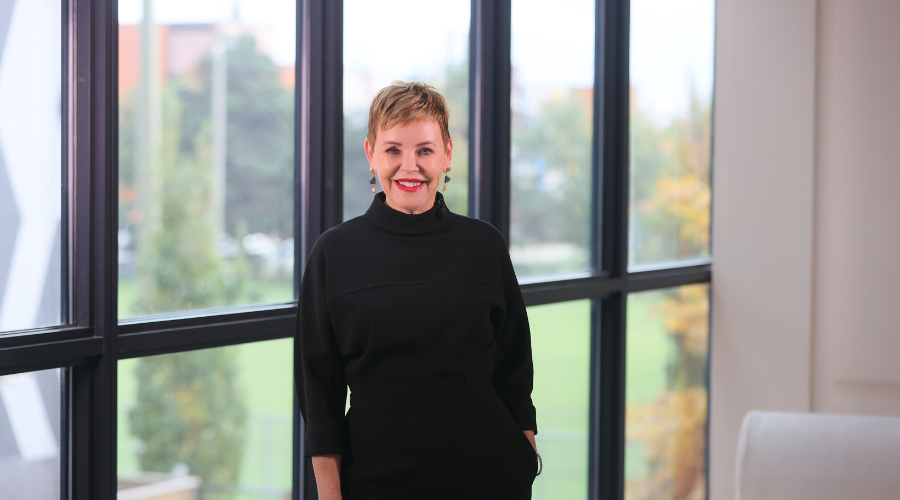Reverse mortgages have become extremely popular in Canada. Canadians now borrow billions of dollars in reverse mortgages, and in 2024, reverse mortgage borrowing increased by over 39% compared to 2022.
In spite of this, reverse mortgages are still not very well understood in Canada. Retirees often ask themselves: does a reverse mortgage ever make sense? Are reverse mortgages worth it? And when is a reverse mortgage a good idea?
In this article, we’ll explain what a reverse mortgage is, how it works and who should get a reverse mortgage (including who can qualify for a reverse mortgage and who would benefit the most from one).
What is a reverse mortgage?
A reverse mortgage is similar to a regular mortgage, in that it’s a loan that’s secured against your home (meaning your home is used as a guarantee that the loan will eventually be paid off).
Qualifying homeowners can borrow up to 55% of the value of their home, while the actual amount will depend on the value of your home, the type of home and its location, plus your age (and that of your spouse).
A key benefit is that you don’t have to make regular mortgage payments for as long as you live in your home. You only have to pay back what you owe when you move out or sell it.
Reverse mortgage eligibility
Do reverse mortgages make sense for everybody? No; they’re specifically designed for retirees and people close to retiring. If you’re considering when to do a reverse mortgage, it’s important to know that you can only qualify if you meet certain criteria.
When can you get a reverse mortgage? You must:
- Be aged 55 or older.
- Be a homeowner with your primary home in Canada.
- Have enough equity in your home.
Does a reverse mortgage ever make sense?
Yes , it certainly does. There are several advantages that make a reverse mortgage popular with Canadian retirees:
- You can cash in up to 55% of your home’s value.
- You receive a tax-free lump sum (or you can receive regular, tax-free monthly or quarterly payments).
- You don’t have to make mortgage payments; this can be a huge help for retirees who need to increase their monthly income.
- The tax-free money can be used for any reason at all.
Scenarios where a reverse mortgage makes sense
There is a wide variety of people who would benefit from a reverse mortgage. Because the money from a reverse mortgage can be used for any purpose, a reverse mortgage can be an extremely useful financial tool in many circumstances. Here are just a few examples:
Do reverse mortgages make sense if you have limited mobility?
Absolutely. The proceeds from a reverse mortgage can be used to renovate your home to make it easier for you to live there. It can help you stay in the home you love for much longer.
Do reverse mortgages make sense if you need to increase your retirement income?
Yes, they do. Many Canadian retirees struggle to survive off the Canada Pension Plan and Old Age Security. The cost of living has gone through the roof in recent years, making it difficult for many retirees to fully enjoy their retirement. By receiving your reverse mortgage in monthly instalments, you could reduce financial stress and start enjoying your life again.
Do reverse mortgages make sense if you’re determined to grow old in your home?
They certainly do. If you find that you need extra help around the home, either to keep the house clean, make meals or bathe yourself, a reverse mortgage can be used to pay for the help you need. It can help you to stay in the home you love, rather than be forced to move into a care home.
Do reverse mortgages make sense for people with expensive debt?
The money from a reverse mortgage can be used to pay off expensive debt, like credit cards and payday loans. This will then free up more of your retirement income, reducing financial stress and allowing you to have a more enjoyable retirement.
When does a reverse mortgage make sense for older working people?
If you’re ready to retire but simply can’t afford to (this could be because your Old Age Security or other benefits won’t be paid out for some time yet, or if you simply don’t have enough income to fully retire) a reverse mortgage could make very good sense. Many Canadians have been able to retire earlier than they imagined, thanks to a reverse mortgage.
Are reverse mortgages worth it?
For many people, they really are worth it. Firstly, you don’t have to make regular mortgage payments, so it frees up a lot of your retirement income. And secondly, reverse mortgage interest rates are typically much lower than for unsecured loans, such as payday loans, credit cards and personal loans.
Who should get a reverse mortgage?
If you’re not sure when to do a reverse mortgage, or if it’s a good idea for you, consider whether you sound like a typical reverse mortgage customer. Are you over 55 and:
- Struggling to survive off your current retirement income?
- In need of renovations to make your home more accessible?
- Finding it difficult to pay off your debts?
- Determined to have a more enjoyable retirement than your current income allows?
- Want to be able to take more vacations?
- Having difficulty paying for medical treatment/care?
If any of these resonate with you, a reverse mortgage might be a good option for you.
Who shouldn’t get a reverse mortgage?
Now that we’ve answered the key question, when does a reverse mortgage make sense, let’s answer the opposite question: when does a reverse mortgage not make sense?
Because, like all borrowing options, reverse mortgages aren’t for everybody. Reverse mortgages aren’t recommended for people who:
- Are under 55.
- Are likely to move home in the near future.
- Have very little home equity.
Why you should consider the CHIP Reverse Mortgage
If you’ve decided that you’re the kind of person who should get a reverse mortgage, there are some compelling reasons to choose a CHIP Reverse Mortgage from HomeEquity Bank.
First, it’s flexible. You could take out one tax-free lump sum, which you’ll receive all at once. This is useful for people who want to pay off debts, pay for renovations or cover unexpected expenses.
Alternatively, you could opt to receive monthly or quarterly tax-free payments to bridge the gap between your income goal, and your savings and retirement benefits. This is ideal if you need to regularly boost your income or if you want to improve your retirement lifestyle.
A reverse mortgage can be a practical way to access the value in your home without needing to sell or relocate. Many Canadians use the funds to complete important renovations, such as making their homes more accessible as their needs change — whether that means installing walk-in showers, stair lifts, or modifying entryways.
Others use the proceeds to reduce financial pressure by paying off higher-interest debt or existing mortgage, helping to free up monthly income, reduce monthly payments, and simplify their finances in retirement.
Some choose to use their reverse mortgage to enhance their lifestyle — by covering travel expenses, funding family support, or simply making day-to-day life more comfortable. Because the funds are tax-free and require no regular payments, a reverse mortgage offers flexibility in how and when it’s used. For those seeking greater financial confidence and stability while remaining in their home, it can be a valuable option.
CHIP Reverse Mortgage rates are much lower than many other borrowing options, such as credit cards and personal loans. It’s also often much easier to qualify for a CHIP Reverse Mortgage than a regular mortgage, home equity line of credit or loan. This is because you don’t need considerable income or a decent credit score to qualify. A CHIP Reverse Mortgage can be the best choice because affordable alternative options are often not available to retirees.
Find out how much you could qualify for with a CHIP Reverse Mortgage by calling us at 1-866-522-2447 or by using our reverse mortgage calculator.







